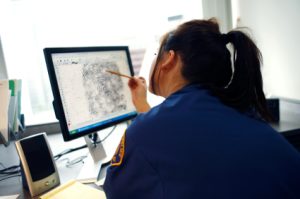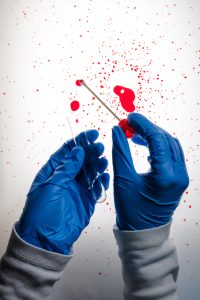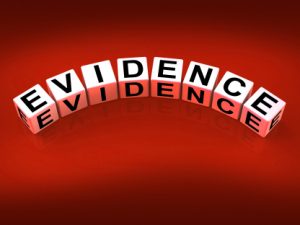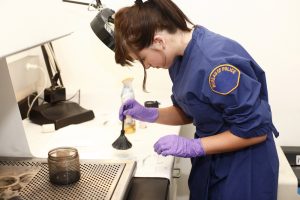The Critical Role of Forensic Nurses in Sexual Assault Examination
Forensic nurses play a critical role in sexual assault examination by providing specialized care, preserving evidence, and ensuring legal and ethical standards are met. This article explores the importance of forensic nurses in addressing sexual assault cases and the challenges they face in their practice. If interested in helping victims and the authorities, then please review AIHCP’s Forensic Nursing Certification
Key Takeaways
- Forensic nurses provide victim-centered care with specialized training and expertise.
- Ensuring chain of custody protocols and confidentiality rights are upheld is crucial in sexual assault examination.
- Interdisciplinary collaboration with law enforcement and victim advocates is essential for effective case management.
- Forensic nurses face challenges such as emotional impact of trauma and resource constraints in their practice.
- Innovations in forensic nursing practice, including technology in evidence collection and trauma-informed care models, are advancing the field.
The Importance of Forensic Nurses in Sexual Assault Examination
Specialized Training and Expertise
In our role as forensic nurses, we possess a unique set of skills that are critical in the examination of sexual assault victims. Our specialized training enables us to perform comprehensive medical-legal examinations and to understand the nuances of both the healthcare and legal systems. This dual expertise ensures that the care we provide meets the highest standards of practice.
- Understanding of trauma and its effects on the victim
- Knowledge of forensic evidence collection techniques
- Proficiency in testifying in legal proceedings
Our expertise is not only in the clinical aspects but also in the delicate balance of providing compassionate care while meticulously collecting evidence. This balance is crucial in building a bridge between the medical response to sexual assault and the pursuit of justice.
The depth of our training is reflected in the certifications we hold and the continuous education we pursue. It is our responsibility to stay abreast of the latest developments in forensic nursing to ensure that our practice is informed by the most current research and best practices.
Victim-Centered Care Approach

In our practice as forensic nurses, we prioritize a victim-centered care approach, ensuring that the dignity and autonomy of the survivor are at the forefront of the examination process. We strive to create a supportive environment that empowers survivors, allowing them to make informed decisions about their care.
- Establish trust and rapport with the survivor
- Provide clear explanations of all procedures
- Respect the survivor’s choices and control over the examination
- Offer resources for psychological and legal support
Our goal is to minimize re-traumatization and to acknowledge the survivor’s experience and feelings as valid and important. This approach not only facilitates a more humane and compassionate care but also enhances the quality of the evidence collected, as survivors who feel safe and respected are more likely to engage fully in the process.
Collection and Preservation of Evidence
In our role as forensic nurses, we recognize the pivotal importance of meticulous collection and preservation of evidence. This process is fundamental to the integrity of the judicial system and the pursuit of justice for survivors of sexual assault. The evidence we collect must be uncontaminated, properly documented, and legally admissible.
- We begin by establishing a secure environment to prevent evidence tampering.
- Each piece of evidence is collected using standardized protocols to ensure consistency.
- We meticulously label and seal evidence to maintain its integrity.
The chain of custody is initiated from the moment evidence is collected, requiring detailed documentation at every step to track the evidence’s journey from the crime scene to the courtroom.
Our expertise extends to understanding the types of evidence that are most crucial in sexual assault cases, such as DNA, fibers, or digital evidence. We are trained to anticipate the needs of the legal process, ensuring that our collection methods meet the stringent requirements of the courts.
Legal and Ethical Considerations in Sexual Assault Examination
Chain of Custody Protocols
In our role as forensic nurses, we uphold the integrity of the sexual assault examination process through meticulous adherence to chain of custody protocols. Ensuring the unbroken chain of custody is paramount; it establishes the legal context for evidence and is critical for its admissibility in court.
- We begin by documenting the initial collection of evidence, noting the date, time, and personnel involved.
- Each piece of evidence is then sealed, labeled, and logged into a tracking system.
- Transfers of evidence are recorded, detailing the recipient and the purpose of the transfer.
The sanctity of the chain of custody cannot be overstated. Even a minor lapse can compromise the entire case, underscoring the gravity of our responsibility.
We continuously update our protocols to reflect the latest legal requirements and best practices, ensuring that the evidence we collect stands up to the scrutiny of the judicial process.
Confidentiality and Privacy Rights
We recognize the paramount importance of maintaining confidentiality and upholding the privacy rights of survivors during sexual assault examinations. The trust placed in us by survivors is fundamental, and it is our duty to ensure that their sensitive information is protected at all times.
- Ensure all conversations and examinations occur in a private setting.
- Limit the sharing of personal information to individuals directly involved in the care or legal process.
- Adhere strictly to HIPAA regulations and other privacy laws.
It is essential to create an environment where survivors feel secure and understand that their privacy is a top priority. This not only respects their rights but also encourages the reporting of sexual assaults and cooperation during the examination process.
We must be vigilant in our efforts to safeguard the information entrusted to us, as any breach can have severe consequences for the survivor’s well-being and the integrity of the case. Our adherence to confidentiality and privacy is not just a legal obligation but a moral one, reflecting our commitment to ethical practice in forensic nursing.
Informed Consent Process
We recognize the informed consent process as a fundamental ethical and legal requirement in the examination of sexual assault survivors. The process ensures that survivors understand the nature of the forensic examination and agree to the collection of evidence. It is crucial that we, as forensic nurses, provide clear explanations about the procedures, potential uses of the evidence, and the survivor’s rights, including the right to withdraw consent at any point.
- Explain the purpose and procedures of the forensic examination.
- Discuss the potential uses of the evidence collected.
- Clarify the survivor’s rights, including the right to withdraw consent.
The informed consent process is not merely a formality; it is an ongoing dialogue that empowers survivors by respecting their autonomy and decision-making capacity.
Ensuring that consent is given voluntarily, without coercion, and with full understanding is a responsibility we take seriously. We must be vigilant in recognizing the survivor’s state of mind and capacity to consent, adapting our approach to each individual’s needs and circumstances.
Role of Forensic Nurses in Interdisciplinary Collaboration
Coordination with Law Enforcement
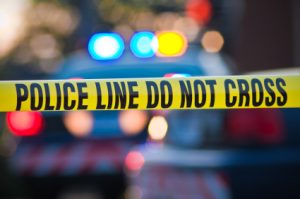
In our role as forensic nurses, we recognize the imperative need to work in tandem with law enforcement to ensure a seamless investigative process. Our collaboration is pivotal in bridging the gap between medical care and judicial requirements. We maintain open lines of communication with officers and detectives, which allows for a more comprehensive approach to both the care of the survivor and the pursuit of justice.
- Establishing initial contact and sharing relevant information without breaching confidentiality.
- Assisting in the understanding of medical findings and their legal implications.
- Providing testimony in court as expert witnesses when required.
It is through this interdisciplinary partnership that we can construct a supportive framework for survivors, one that upholds the integrity of the legal process while prioritizing their health and dignity. Our joint efforts are not only about collecting evidence but also about advocating for the rights and needs of those we serve.
Collaboration with Victim Advocates
In our practice as forensic nurses, we recognize the invaluable role that victim advocates play in the holistic care of individuals who have experienced sexual assault. Our collaboration with victim advocates is essential to ensure that the survivors’ emotional and psychological needs are addressed alongside their medical and legal needs.
- Victim advocates provide emotional support and crisis intervention.
- They assist with navigating the complexities of the legal system.
- Advocates ensure that survivors are informed of their rights and the resources available to them.
By working closely with victim advocates, we create a supportive environment that empowers survivors throughout the examination process and beyond. This partnership not only aids in the healing journey of the survivors but also strengthens the quality of the care we provide.
The synergy between forensic nurses and victim advocates is crucial for a survivor-centered approach. It allows us to deliver comprehensive care that respects the dignity and autonomy of each individual we serve.
Consultation with Forensic Experts
In our role as forensic nurses, we recognize the importance of multidisciplinary collaboration, particularly when consulting with forensic experts. These consultations are crucial for a comprehensive analysis of forensic evidence, which can be pivotal in legal proceedings. We ensure that our inquiries and discussions are thorough, evidence-based, and maintain the integrity of the investigation.
- Interpretation of toxicology reports
- Analysis of DNA evidence
- Consultation on wound patterns and their possible causes
Through these collaborative efforts, we strive to bridge the gap between medical findings and judicial requirements. It is our responsibility to translate clinical observations into meaningful forensic information that can withstand the scrutiny of the legal system.
Our collective expertise, when pooled together with that of forensic experts, leads to a more robust and accurate interpretation of the evidence, ultimately serving the pursuit of justice.
Challenges Faced by Forensic Nurses in Sexual Assault Examination
Emotional Impact of Trauma
We, as forensic nurses, are acutely aware of the emotional toll that working with victims of sexual assault can take on our own mental health. The nature of our work requires us to be empathetic and compassionate, yet this very empathy can lead to what is known as secondary traumatic stress or vicarious trauma.
We must recognize the signs of emotional distress and seek support when needed. It is not uncommon for us to experience symptoms such as anxiety, depression, or burnout as a result of our close work with survivors of sexual assault. These symptoms can affect not only our professional performance but also our personal lives.
- Acknowledge personal emotional responses
- Identify stressors and triggers
- Develop coping mechanisms
- Seek professional mental health support
It is imperative that we maintain a balance between our professional responsibilities and our own emotional well-being. Failing to do so can lead to decreased job satisfaction and a higher turnover rate within the forensic nursing field.
Navigating Legal Procedures
In our role as forensic nurses, we are often required to navigate complex legal procedures that extend beyond the immediate care of sexual assault survivors. We must ensure that our actions within the examination room are legally sound and defensible in a court of law.
- Understanding the jurisdictional laws and regulations
- Adhering to strict legal guidelines during examinations
- Preparing clear and concise documentation for legal proceedings
Our meticulous attention to legal details not only upholds the integrity of the judicial process but also reinforces the trust placed in us by the survivors and the community.
The legal landscape is ever-evolving, and we must stay informed about changes in legislation and judicial precedents that affect our practice. This commitment to legal literacy is crucial in providing survivors with the highest standard of care while safeguarding their rights within the legal system.
Resource Constraints
We often encounter significant resource constraints that impact our ability to provide comprehensive care and conduct thorough examinations. Limited funding and staffing shortages are common challenges that can lead to increased caseloads and burnout among forensic nurses.
The availability of essential supplies and equipment is also a critical factor. Without the necessary tools, the quality of evidence collection can be compromised, potentially affecting the outcomes of legal proceedings.
- Inadequate training resources for ongoing education
- Insufficient support staff to assist with non-clinical tasks
- Limited access to specialized equipment and facilities
It is imperative that we advocate for increased resources to ensure that forensic nurses are equipped to meet the demands of their crucial role in the justice system.
Innovations and Advances in Forensic Nursing Practice
Technology in Evidence Collection
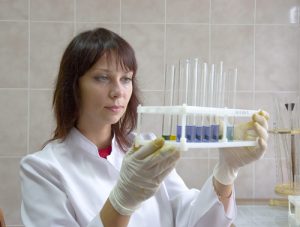
In our pursuit of excellence in forensic nursing, we have embraced cutting-edge technologies that significantly enhance the collection and analysis of evidence in sexual assault cases. The integration of digital imaging and electronic documentation systems has revolutionized the way we capture and store forensic evidence. These advancements not only improve the accuracy of the evidence collected but also streamline the examination process, allowing for more efficient case management.
- Digital colposcopes provide high-resolution images of injuries, which are vital for documentation and court proceedings.
- Specialized software assists in the accurate documentation of injuries and collection of data, ensuring consistency and reliability.
- Barcoding systems for evidence kits reduce the risk of human error and improve the tracking of evidence throughout the legal process.
The meticulous use of technology in evidence collection is crucial. It not only bolsters the credibility of the forensic findings but also upholds the integrity of the judicial process. By adopting these technological tools, we are better equipped to serve the needs of survivors and contribute to the administration of justice.
Trauma-Informed Care Models
In our pursuit of excellence in forensic nursing, we have embraced trauma-informed care models that fundamentally transform the patient experience. These models prioritize the physical, psychological, and emotional safety of survivors, ensuring that every interaction fosters a sense of trust and empowerment.
Trauma-informed care is built on several key principles:
- Understanding the prevalence and impact of trauma
- Recognizing the signs and symptoms of trauma in patients
- Integrating knowledge about trauma into policies, procedures, and practices
- Seeking to avoid re-traumatization
By adopting a trauma-informed approach, we not only provide more compassionate and effective care but also contribute to the healing and recovery process of survivors.
The implementation of these models requires continuous education and a commitment to self-reflection. We must remain vigilant in our efforts to understand the evolving needs of those we serve and adapt our practices accordingly. The ultimate goal is to create a supportive environment where survivors feel understood, respected, and valued throughout their journey to justice and healing.
Research and Evidence-Based Practices
In our pursuit of excellence in forensic nursing, we continuously integrate research and evidence-based practices into our protocols. We prioritize the application of the latest scientific findings to enhance the accuracy and reliability of sexual assault examinations. This commitment not only improves patient outcomes but also bolsters the legal integrity of the evidence collected.
- Staying abreast of current literature in forensic science
- Implementing new techniques validated by peer-reviewed research
- Evaluating the effectiveness of our practices through ongoing studies
By systematically reviewing and updating our procedures, we ensure that our approach to care remains at the forefront of forensic nursing. This process is vital for maintaining the highest standards of practice and for fostering an environment of continuous learning and improvement.
The table below illustrates the impact of evidence-based practices on the quality of forensic examinations over the past five years:
| Year | % Increase in Evidence Quality | % Increase in Positive Legal Outcomes |
|---|---|---|
| 2018 | 10% | 8% |
| 2019 | 15% | 12% |
| 2020 | 20% | 18% |
| 2021 | 25% | 22% |
| 2022 | 30% | 27% |
The data underscores the significance of our dedication to evidence-based practices, revealing a clear trend of improvement in both the quality of evidence and the success rate in legal proceedings.
Supporting the Well-Being of Forensic Nurses
Self-Care Strategies
In our demanding field, we recognize the paramount importance of self-care for forensic nurses. Self-care is not a luxury, but a necessity to maintain the high level of compassion and professionalism required in our work. We advocate for a holistic approach to self-care, encompassing physical, emotional, and mental well-being.
- Regular physical activity and proper nutrition are foundational to sustaining energy and health.
- Mindfulness and stress-reduction techniques can mitigate the emotional toll of our work.
- Ensuring adequate rest and leisure time is crucial for mental rejuvenation.
We must create a culture where taking time for self-care is not only accepted but encouraged. It is essential for the sustainability of our profession and the quality of care we provide to those we serve.
Professional support systems also play a critical role. We encourage participation in peer support networks and seeking professional counseling when needed. These strategies not only aid in coping with the rigors of the job but also contribute to personal growth and resilience.
Professional Development Opportunities
In our pursuit of excellence in forensic nursing, we recognize the significance of continuous professional development. Professional development opportunities are vital for forensic nurses to stay abreast of the latest practices and technologies in the field. These opportunities not only enhance our skills but also ensure that we provide the highest standard of care to survivors of sexual assault. AIHCP offers certifications for nurses in forensics. Please also review AIHCP’S Forensic Nursing Program

- Attendance at specialized workshops and seminars
- Participation in advanced certification programs
- Engagement in research projects and publication efforts
By investing in our professional growth, we not only improve our own competencies but also contribute to the advancement of forensic nursing as a whole. This commitment to lifelong learning is essential in adapting to the evolving landscape of healthcare and forensic science.
Furthermore, professional development can take many forms, from formal education to practical experience. It is crucial that we, as forensic nurses, take advantage of these opportunities to refine our expertise and expand our knowledge base. This dedication to professional enrichment not only benefits our career trajectories but also the communities we serve.
Peer Support Networks
In our practice as forensic nurses, we recognize the immense value of peer support networks. These networks provide a platform for sharing experiences, offering emotional support, and exchanging practical advice. They are vital in helping us navigate the complexities of our roles and maintain our mental and emotional health.
- Peer support networks facilitate the exchange of coping strategies.
- They provide a safe space for discussing challenging cases.
- They encourage open dialogue about the emotional toll of our work.
- They offer mentorship opportunities for less experienced nurses.
By fostering a sense of community, peer support networks empower us to approach our work with resilience and compassion. They remind us that we are not alone in our experiences and that collective wisdom can guide us through our most difficult days.
The benefits of these networks are not just anecdotal; they are reflected in the improved job satisfaction and reduced burnout rates among forensic nurses who actively participate in them. It is crucial for institutions to recognize and support the formation and maintenance of these networks as part of the overall strategy to sustain a healthy workforce.
Conclusion
In conclusion, forensic nurses play a critical role in the examination and care of sexual assault survivors. Their specialized training and expertise in forensic evidence collection, trauma-informed care, and courtroom testimony are essential in ensuring justice and support for survivors. By providing compassionate and comprehensive care, forensic nurses contribute significantly to the healing and recovery process of survivors. It is imperative that their invaluable contributions are recognized and supported to continue improving the response to sexual assault cases.
Please also review AIHCP’s Forensic Nursing Specialist Program. The program is online and independent study and open to qualified nurses seeking a Forensic Nursing Certification. Most Forensic Nurses are also SANE nurses and play a pivotal role in helping victims and law enforcement.
Frequently Asked Questions
What is the role of forensic nurses in sexual assault examination?
Forensic nurses play a crucial role in providing specialized care to sexual assault survivors, conducting comprehensive assessments, and collecting evidence for legal proceedings.
How are forensic nurses trained for sexual assault examination?
Forensic nurses undergo specialized training in forensic evidence collection, trauma-informed care, and legal procedures related to sexual assault examinations.
What is victim-centered care approach in sexual assault examination?
Victim-centered care approach focuses on empowering survivors, respecting their autonomy, and providing support throughout the examination process.
Why is evidence collection and preservation important in sexual assault cases?
Evidence collection and preservation are crucial for ensuring the integrity of forensic evidence, supporting legal investigations, and seeking justice for survivors.
What are the legal and ethical considerations in sexual assault examination?
Legal and ethical considerations include maintaining chain of custody, protecting confidentiality and privacy rights, and obtaining informed consent from survivors.
How do forensic nurses collaborate with law enforcement in sexual assault cases?
Forensic nurses collaborate with law enforcement by providing expert testimony, assisting in evidence collection, and participating in multidisciplinary case reviews.
What challenges do forensic nurses face in sexual assault examination?
Forensic nurses face challenges such as emotional impact of trauma, navigating complex legal procedures, and working within resource constraints that impact their ability to provide comprehensive care.
What are some innovations in forensic nursing practice for sexual assault examination?
Innovations include the use of technology in evidence collection, implementation of trauma-informed care models, and adoption of research-based practices to enhance the quality of care for survivors.
Additional Resources
“Sexual Assault Examiner”. International Association of Forensic Nurses. Access here
“What Is a SANE Exam?”. Boskey, E. (2022). Very Well Health. Access here
“How to Become a Sexual Assault Nurse Examiner (SANE)”. Gaines, K. (2024). Nurse.Org. Access here
“Sexual Assault Evidence Collection”. Megan Ladd; Jesus Seda. (2023). National Library of Medicine. Access here

